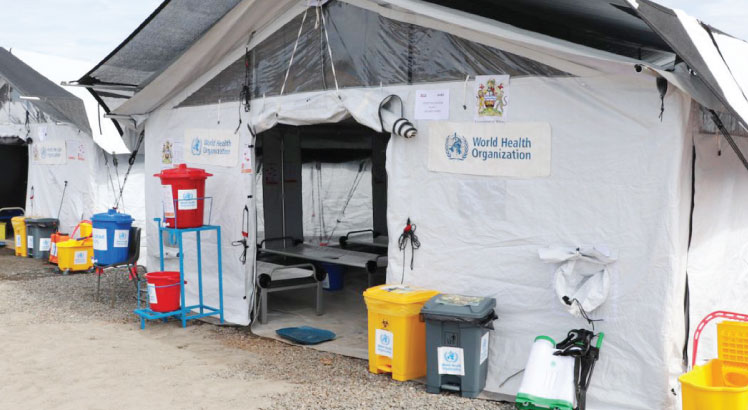Malawi gets K2bn to scale up cholera response
The United States Agency for International Development (USaid) has provided $2.1 million (about K2.18 billion) and committed $400 000 (about K415 million) to Unicef to scale up the ongoing cholera outbreak response in Malawi.
In a statement released yesterday, USaid states that the funds will help prevent cholera transmission in heavily impacted districts and those affected by Cyclone Freddy.
Reads the statement in part: “In collaboration with the ministries of Health and Water and Sanitation, this grant will allow Unicef to reach at least 300 000 people, including approximately 127 000 children by providing life-saving water, sanitation, and hygiene (Wash) services in schools and in surrounding communities.

USaid acting mission director Anna Toness said the new funding comes in response to President Lazarus Chakwera’s disaster declaration and the Tithetse Kolera Campaign.
She said: “The new $2.5 million builds on Usaid’s long-standing support to Malawi. We are proud to partner with Unicef and the government of Malawi to accelerate our joint effort to end cholera.”
United Nations Children’s Fund (Unicef) country representative Dr Gianfranco Rotigliano commended USaid for what he called timely support in enhancing access to safe water and promoting good hygiene and sanitation practices.
Malawi has been grappling with a cholera outbreak for over a year, resulting in the loss of more than 1 700 lives.
With the funding, Unicef plans to rehabilitate and upgrade water schemes and sanitation facilities in health facilities and schools, supply essential cholera prevention materials, and engage communities with cholera prevention messages.
Unicef is also helping learners return safely to school in some of the districts impacted by Cyclone Freddy, such as Blantyre, by providing soap, clean water, and wash buckets; conducting water quality monitoring and treatment; and promoting hygiene in schools and in surrounding communities.
Improving access to better and climate-resilient water supply systems in communities and healthcare facilities is crucial to saving lives, enhancing people’s well-being, and reducing the burden of Wash-related diseases on Malawi’s health system.





